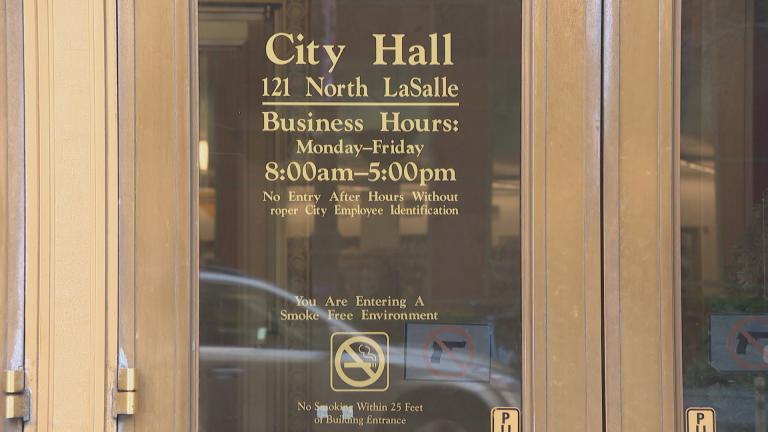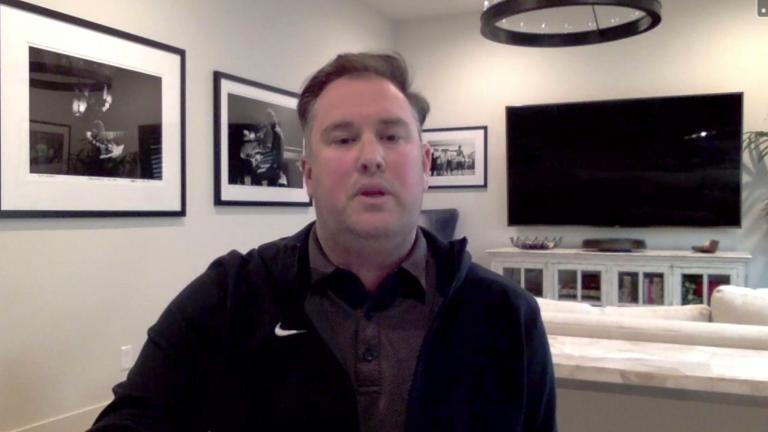Five years since the #MeToo movement took off, a change is coming that will give women more protections in the workplace, and – a rarity for Washington – the measure has bipartisan backing.
It’s illegal to subject an employee to sexual harassment or assault. The issue: What’s done when it occurs?
For an estimated 60 million workers in the U.S. the answer has been forced arbitration.
Michael LeRoy, a mandatory arbitration researcher with the University of Illinois Urbana Champaign College of Law’s School of Labor and Employment Relations, said arbitration has been around since King Solomon suggested splitting a baby, and it can be a good system when it’s voluntary.
But he says since the ‘90s, it’s increasingly become mandatory even though it’s not a good fit for an “ordinary workplace.”
“What that means is you’re giving up your constitutional right to go to a court first. Second it means you’re going to play by the employer’s rules for arbitration. Some of the rules are even-handed; some of the rules are egregiously unfair,” LeRoy said. “Even with the even-handed rules, you don’t get the benefit of a jury.”
University of Illinois Springfield professor Deborah Anthony, a lawyer and expert in employment discrimination, said employees aren’t given a choice but to agree to the process.
Hence, the term “forced arbitration.”
“So you’re presented with a contract that you have to sign — it’s often in the fine print – and it’s take it or leave it. So you, if you’re not happy with it, you don’t take the job,” Anthony said. “And so you don’t have equal bargaining power on whether you agree to that or not. And you have to accept it as a blanket matter for any potential situation that comes up that hasn’t happened yet.”
Often businesses design the arbitration system to work in their favor — a complainant may not be allowed to have an attorney, or if the complainant loses, they may have to pay for the process.
“For employers there’s a great advantage (to forced arbitration). First of all, it reduces your liability greatly. So even in cases where there is a finding of sexual harassment and misconduct, the payout is a lot less typically,” Le Roy said. “In one research project I did, I found that women actually won more frequently in arbitration than in court. However, their payouts were much smaller.”
There’s another benefit to companies that go the arbitration route.
“Arbitration is secretive and private as opposed to trials which are public,” Anthony said. “So in sexual assault and harassment cases, that lack of transparency tends to benefit the alleged wrongdoers rather than the victims.”
Bad actors are then shielded from public shaming and embarrassment. It’s also hard to collect information on repeat offenders.
These biases came to light during the #MeToo movement, including as former Fox News anchor Gretchen Carlson went public with allegations against now deceased network executive Roger Ailes.
Carlson was in Washington earlier this week, to celebrate passage of the Ending Forced Arbitration of Sexual Assault and Sexual Harassment Act.
“I am here on the behalf of millions of American workers who have been silenced. Workers who simply wanted to go to their jobs every day and work in a safe environment. Workers who had the courage to come forward to say something was wrong and in return got shunted into a secret chamber, most of them never heard from ever again” Carlson said at a Feb. 10 news conference.
The law will apply retroactively.
Victims can still choose arbitration, and may have good reason to do so, like for speed or to protect their own privacy.
But in voluntary arbitration, victims won’t be forced into uneven terms.
“The court system has flaws too, let’s not kid ourselves,” LeRoy said. “Only one to 2% of complaints ever make it to a trial. Courts are just very slow. It often takes three to five years to get a sex discrimination complaint worked up from complaint to what we call discovery, pre-trial motions. And 98% of these cases are either dismissed or they’re settled.”
Carlson said when it goes into effect, the law will have dual outcomes.
“It’s going to help companies get on the right side of history, that’s for sure. But it will also stop the bad behavior, because now the bad actors will know that women’s’ voices will be heard when they speak up,” she said.
It’s important to remember, UIS legal scholar Anthony said, that forced arbitration is still permitted for other workplace claims, such as those of racial or religious discrimination or family leave disputes.
“All other type of employment claims are not impacted by this, so other types of discrimination or violations of employee rights, the arbitration agreements would still apply,” Anthony said.
And when it comes to protecting sexual assault survivors, director of the Illinois Coalition Against Sexual Assault, Carrie Ward, said Congress needs to reauthorize the Violence Against Women Act. She also is calling for legislation to give survivors more options and the opportunity to pursue criminal and civil legal remedies.
Ward said there’s room for improvement on the state and federal level for child sex abuse and sex harassment laws, and in particular stronger actions geared toward campus sexual assault.
“For survivors’ rights to be acknowledged and for offenders to be held accountable for their behavior. We want to see sentencing that’s consistent with charges that are brought forward. We want to see charges that are brought forward that are consistent with the actions that have happened,” Ward said. “We want to see fewer plea agreements. We really want to see survivors have access to justice that should be available to them in the system, and we want to make sure that our laws uphold that.”
Rape crisis centers that are part of ICASA’s network provide support for victims 24/7, 365 days a year.
Follow Amanda Vinicky on Twitter: @AmandaVinicky






